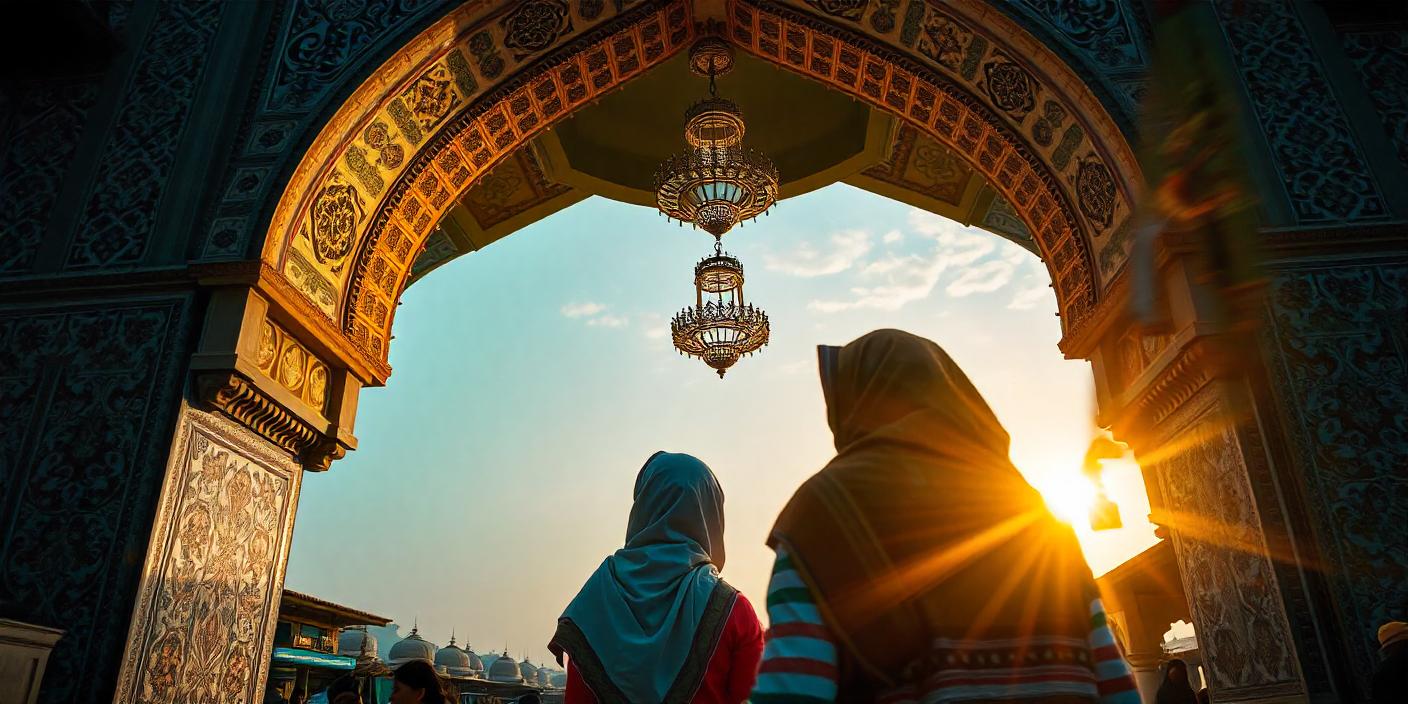Why do Non-Muslims choose Islam
Choosing to follow a new religion is a very personal and life-changing experience that differs from person to person. Numerous non-Muslims choose to convert to Islam for a range of emotional, cultural, intellectual, and spiritual reasons. Gaining insight into the reasons non-Muslims choose Islam will help us better understand the religion’s allure and the significant influence it has on its adherents
Spiritual Fulfillment and Clarity
A sense of spiritual fulfilment is one of the most often mentioned motivations for converting to Islam. After studying and practicing Islam, many new converts report experiencing a profound sense of clarity and serenity. The focus on monotheistic, which holds that there is only one all-knowing, merciful, and compassionate God (Allah), appeals to people who want a close, intimate relationship with Allah.
Understanding the nature of the Creator is made easier and more clear by the Islamic idea of tawhid, or the oneness of God. Other religious traditions, on the other hand, might have numerous deities or intricate theological structures. Converts frequently say that their inner quest for spiritual truth is in line with Islam’s simple teaching of obedience to a single Allah.
The Logical and Rational Appeal of Islam
The rational and logical framework of Islam’s teachings is another important factor that attracts non-Muslims to the religion. Islam urges its adherents to think critically and rationally about both religious and secular issues. The Qur’an itself exhorts people to reflect carefully, challenge presumptions, and pursue knowledge. Islam provides logical people with intellectually stimulating and spiritually enlightening explanations of the cosmos, human existence, and the meaning of life.
Many people are drawn to Islam because of its emphasis on knowledge and reason, as well as how well religious teachings mesh with scientific principles. They frequently point out that Islam encourages followers to investigate and examine the facts rather than requiring blind faith. People from situations where they believe their prior religious experiences lacked intellectual depth or authenticity may find this openness to inquiry especially appealing
The Beauty of Islamic Practices and Rituals
Attracting non-Muslims to the faith is also greatly aided by Islamic customs and rituals.
A systematic and purposeful approach to life is offered by the five pillars of Islam: Sawm (fasting during Ramadan), Salah (prayer), Zakat (charity), Hajj (the journey to Mecca), and Shahada (statement of faith). These activities assist believers in cultivating self-discipline, a feeling of community, and a continuous relationship with Allah.
Converts are said to be spiritually grounded by the daily prayer (Salah), which gives them a sense of purpose and serenity. Despite its difficulties, fasting during Ramadan is seen as a period for introspection, compassion for the underprivileged, and spiritual rejuvenation. The dedication to almsgiving (Zakat) emphasises the value of social duty in Islam and fosters a sense of solidarity and communal well-being. Many converts view these practices as chances to develop morally and spiritually rather than merely as rituals.
Islam’s Inclusivity and Universality
The message of Islam transcends nationality, ethnicity, and race. For non-Muslims, this inclusivity is a big lure, especially in a society where racial and social inequalities can be common. Islam holds that everyone is created equal in God’s eyes and that the only things that set people apart are their religious beliefs and good conduct. Those looking for a religion that appreciates people as a whole, regardless of circumstances, can find resonance in this emphasis on equality.Another attractive feature of the Muslim community (ummah) is its global reach. New Muslims frequently talk about how it feels to be a part of a global, diverse brotherhood. People from diverse backgrounds come together in Islam, and individuals who might have felt alone in their prior religious or cultural contexts may find this sense of solidarity and support especially consoling.
The Influence of the Qur’an
A close study of the Qur’an, the Islamic holy text, is often the first step on the path to Islam for many non-Muslims. Converts often regard the Qur’an’s spiritual teaching, eloquence, and profundity as a transformative impact. The Qur’an is regarded as a book of knowledge that speaks directly to the reader’s heart and mind in addition to being a religious scripture.The constancy and preservation of the Qur’an, which hasn’t changed since it was revealed more than 1,400 years ago, first impresses some converts. The moral and ethical lessons included in its passages, especially those pertaining to justice, kindness, compassion, and individual rights, move others. For many people, the Qur’an offers solutions to questions they couldn’t find elsewhere regarding the meaning of life and human existence.
Individual Relationships and The interactions with Muslims
Positive encounters with Muslims and personal ties frequently have an impact on the decision to convert to Islam. When examining Islam, many converts point to the example of a Muslim friend, coworker, or spouse. Non-Muslims may become more interested in Islam after witnessing Muslims’ generosity, values, and way of life.Non-Muslims may also be deeply impacted by Muslims’ warmth, giving nature, and strong sense of family and community. In certain instances, these exchanges dispel misconceptions and preconception about Islam, providing the way for a more truthful and uplifting view of the faith.
A Sense of Purpose and Moral Guidance
Islam’s moral and ethical principles give many non-Muslims a strong sense of their life’s purpose. Islam places a strong emphasis on leading a moral life, showing kindness to others, and working towards justice and equity in all spheres of existence. The religion provides a thorough moral code that covers social justice, economic equity, environmental stewardship, and personal behaviour.Converts frequently talk about how they felt aimless or lost before to accepting Islam. Many people find a renewed sense of purpose in the unambiguous guidance offered by Islamic teachings, which span everything from day-to-day activities to more general societal responsibilities. Those who are looking for greater purpose and direction in their lives find resonance in this comprehensive approach to life, which balances individual and collective responsibilities.
Overcoming Stereotypes and Misconceptions
Islam is frequently misinterpreted in the modern world as a result of political narratives or unfavourable media representations. Some non-Muslims start studying Islam to distinguish fact from fiction because they are curious or want to discover the truth for themselves. As individuals get more knowledge, they frequently discover that Islam is a religion of peace, kindness, and compassion rather than the violent or tyrannical religion that it is occasionally depicted as.Many converts describe how their studies of Islam helped them dispel misconceptions and preconceptions. Many people adopt Islam as a religion that supports their ideals of justice, equality, and spiritual development as a result of this process of discovery, which is unaffected by media prejudice.
Conclusion
There are many reasons why non-Muslims choose Islam, from relationships and personal experiences to intellectual and spiritual fulfilment. Islam provides many people with a sense of community, solutions to life’s most profound issues, and a route to personal development. Islam’s worldwide message and emphasis on reason, kindness, and community continue to draw followers from all walks of life, making it one of the world’s fastest-growing religion

